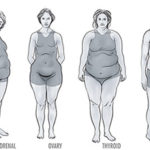3 Health Conditions that Affect Your Balance
Experiencing an episode of dizziness every once in a while is not uncommon, but if the lightheadedness lasts for more than a couple of seconds and occurs on a regular basis, it might be a sign of a more serious condition.
Balance disorders manifest through unsteadiness and dizziness most often, but depending on their underlying cause, you may also feel as if you are spinning, floating or moving when you sit down or lie on the bed. In some people these disorders manifest through feelings of faintness, while others suddenly feel as if they are tipping over when walking.
All these sensations are intense and last only for a couple of seconds or minutes, but are recurrent and can interfere with one’s daily activities, affecting the quality of life.
Balance disorders can be caused by various health conditions as well as by certain medications, but in most cases they’re the result of a malfunction in the inner ear or brain. Muscle, joint and bone problems, visual problems and cardiovascular problems can also cause such manifestations.
Conditions that cause balance problems
Many of the conditions causing balance problems start suddenly, with no previous symptoms and no apparent cause, and although the risk of developing such ailments is greater in older people, young adults can also be affected by balance disorders.
In general, these disorders manifest through dizziness and vertigo (spinning sensation), blurred vision, faintness, a floating sensation, confusion or disorientation and the sensation that you’re going to fall when you stand up or try to walk.
1. Positional vertigo (BPPV)
Positional vertigo or benign paroxysmal positional vertigo (BPPV) as it is scientifically called is a short but intense episode of vertigo, triggered by a change in the position of your head. Sometimes the spinning sensation appears when turning the head to look over your shoulder or when you tilt your head or look down.
In other people this sensation appears when rolling over in bed or looking up, but can also be the result of a head injury or a consequence of aging. In about 50% of cases though, the specific cause for BPPV can’t be identified.
This balance disorder is rarely triggered by damage of the inner ear, but can occur after ear surgery for example, and can also manifest in people who experience frequent migraine episodes. When the ear is involved, the cause is usually the dislodging of some tiny crystals found inside the ear.
The human ear contains an organ called the vestibular labyrinth, in which there are three semicircular canals with fluid and hair-like sensors. These structures are involved in monitoring the head’s rotation, while other tiny structures called otolith organs control the up and down, back and forth, and left and right movements of the head.
The previously mentioned crystals are contained in the otolith organs, so when they become dislodged, they move in the semicircular canals, making it sensitive to changes in the head’s position. This is why dizziness and the other specific symptoms appear.
2. Labyrinthitis
Another problem of the inner ear that can cause dizziness and balance issues is labyrinthitis, the inflammation of the labyrinth.
As said, this part of the ear helps in controlling balance, so when it gets inflamed, it swells and this causes instant vertigo. The dizziness and sensation of spinning occurs with no apparent reason and can lead even to temporary weight loss, or to the occurrence of an annoying ringing sound in your ear.
It is not fully understood what causes this condition but in most cases it’s believed that the inflammation is triggered by a viral or bacterial infection. Infections of the respiratory tract, flu and cold can also be a cause for this balance disorder.
Besides dizziness, labyrinthitis manifests through difficult walking and lightheadedness, and in severe cases, through vomiting, digestive discomfort and general sickness. Usually the symptoms go away after a couple of days but in some people they can last for weeks and occur from time to time, when moving the head too quickly or in certain positions.
3. Ménière’s disease
Symptoms of Ménière’s disease are quite similar to those of labyrinthitis, this condition manifesting through spontaneous episodes of vertigo, a sensation of spinning, ringing in the ear and hearing loss, and sometimes pressure in the ear as well.
Usually affecting only one ear, this condition is more common in people aged 40 to 50, but everyone, even children, can develop it. A disorder of the inner ear, Ménière’s disease is considered a chronic condition; although its exact cause isn’t known, it is believed that an abnormal composition or volume of the fluid in the inner ear causes this ailment.
Other potential triggers for this balance disorder include improper fluid drainage, allergies and viral infections, immunity problems, genetic predisposition, migraines and head trauma. Most likely though, the condition is caused by a combination of factors.















